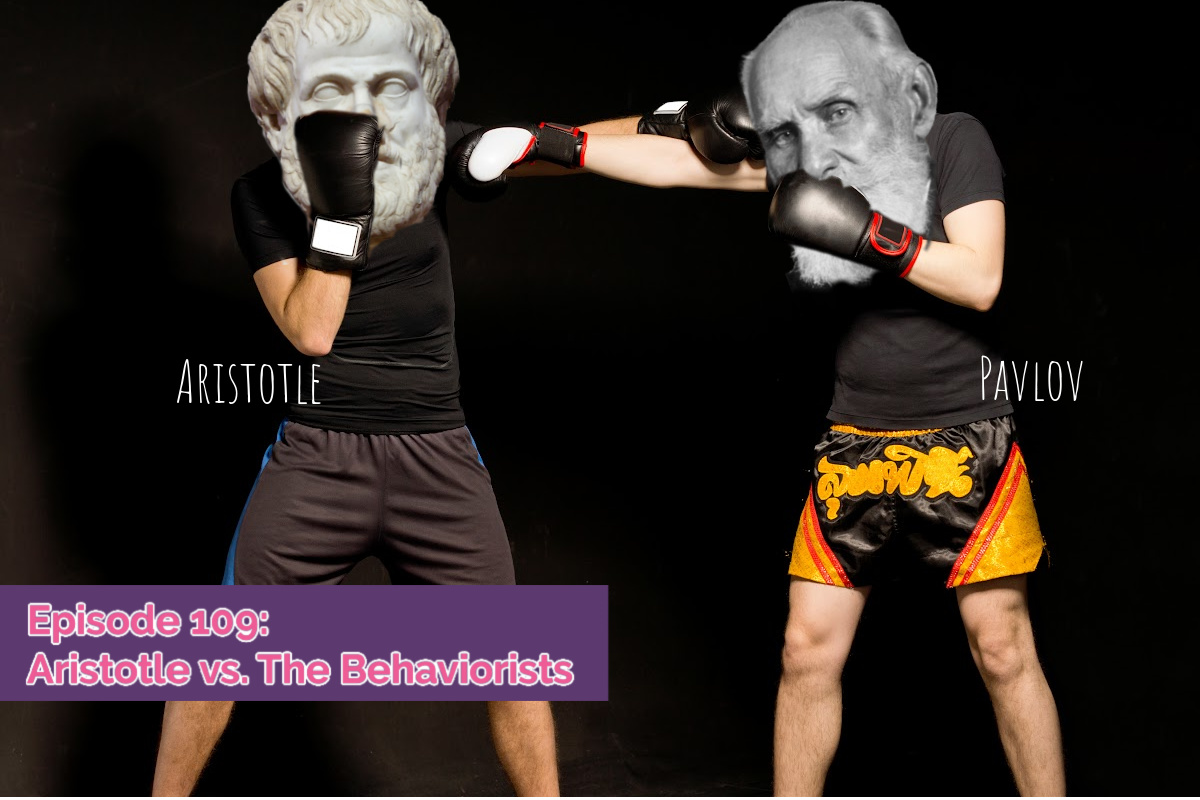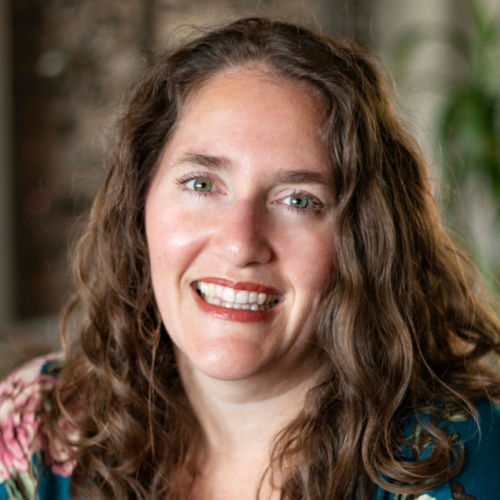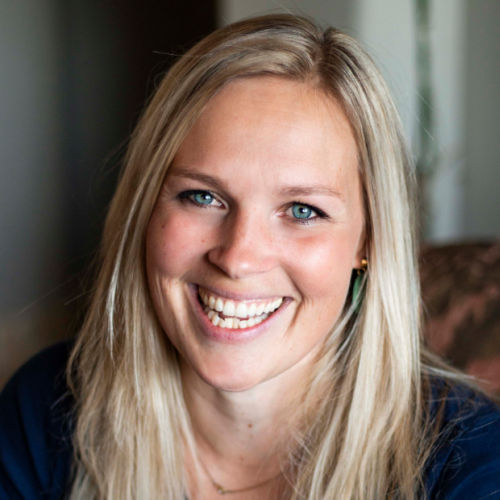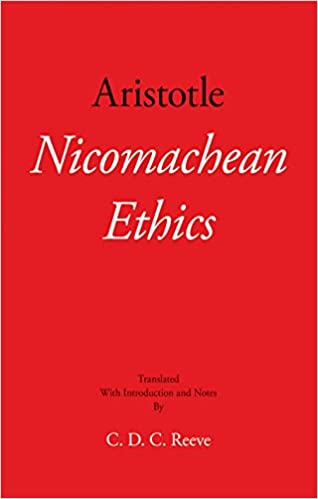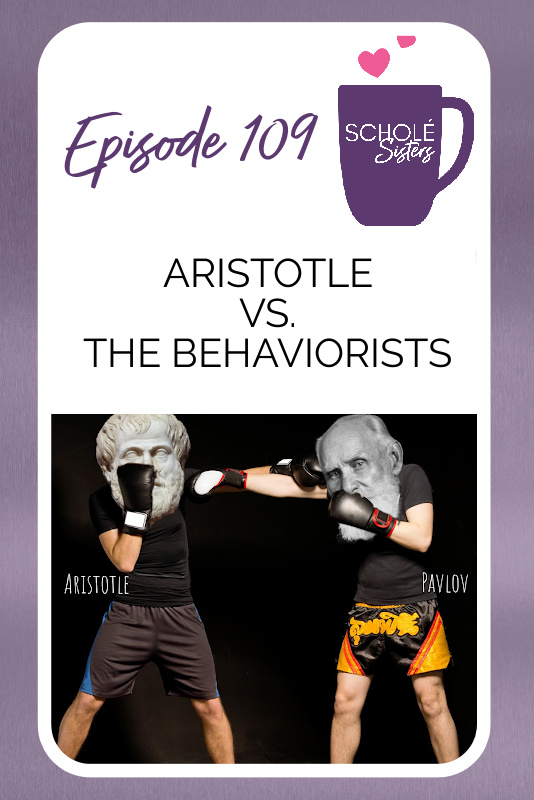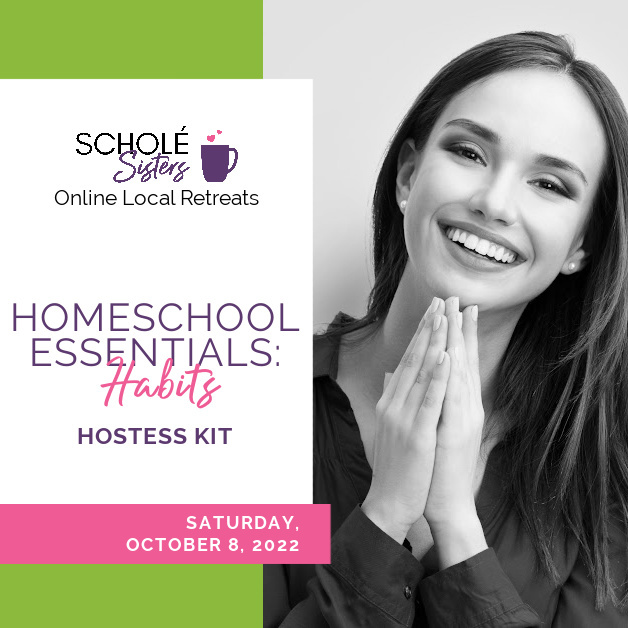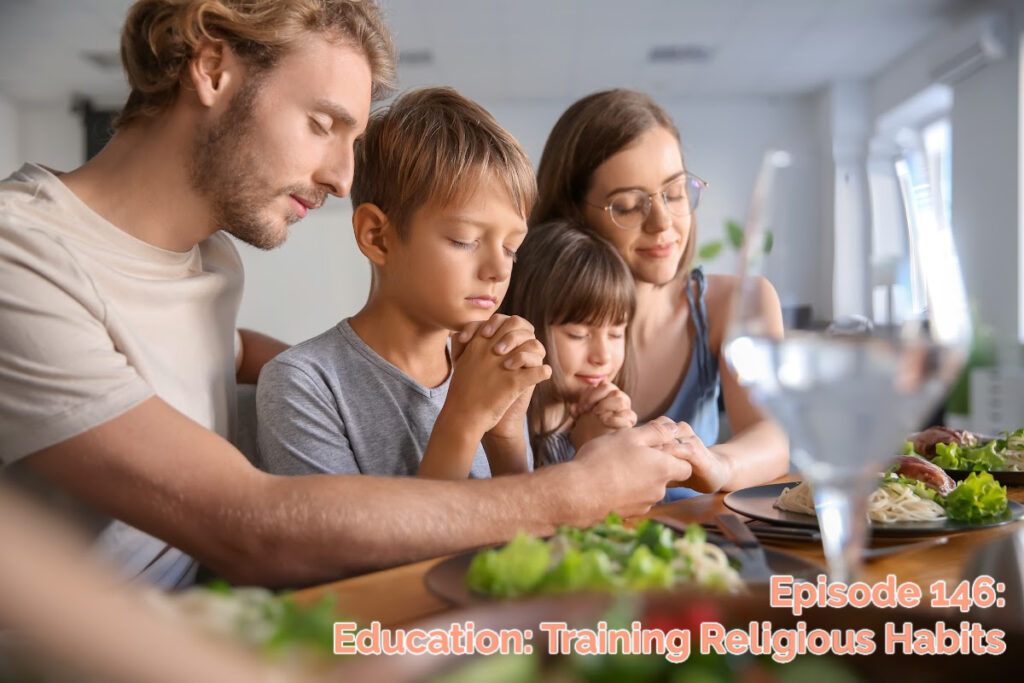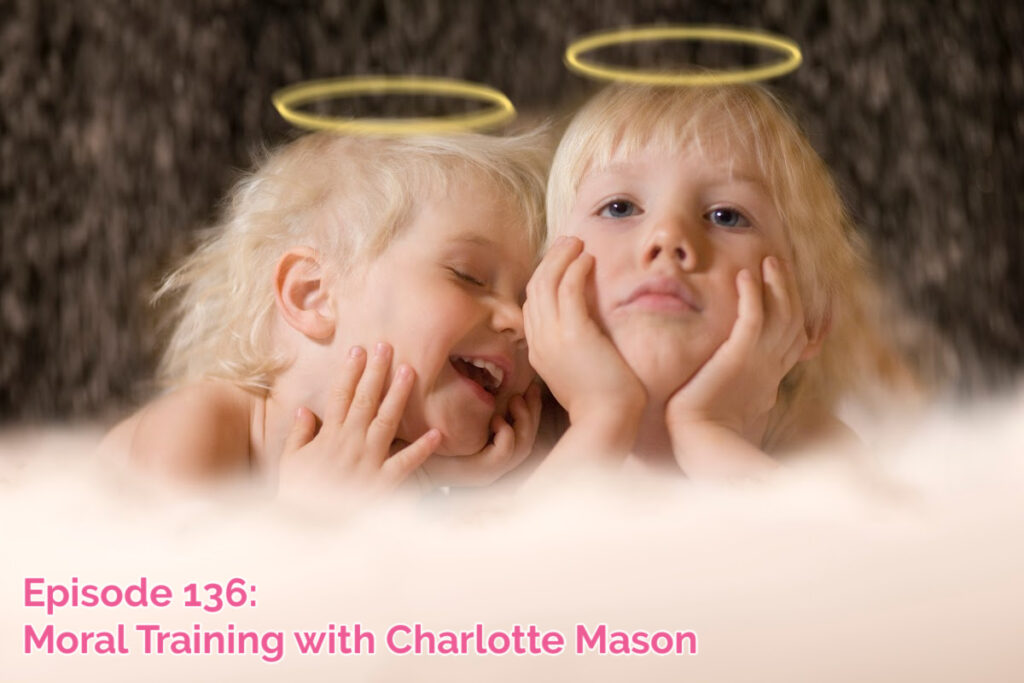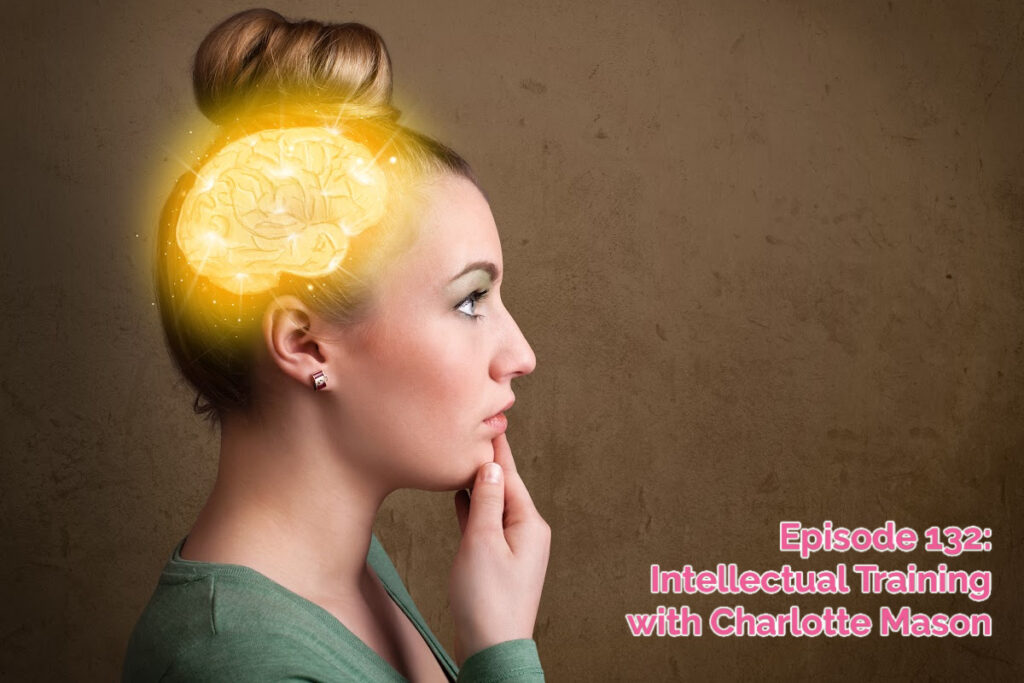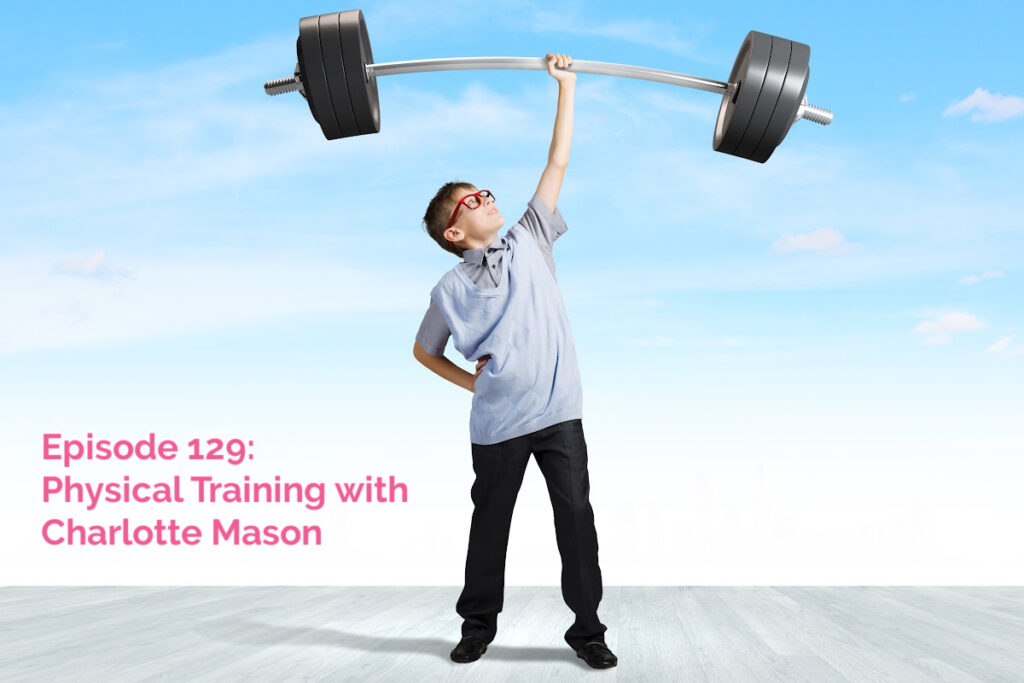SS #109 – Aristotle v. Behaviorists
The topic of this year’s retreat is habits. Habits are a homeschool essential because they is a life essential.
The question is not whether or not you will have habits, but rather what kind will you have. So we need to come at the question of habits intentionally and biblically.
We do a lot of reading to research and prepare for our retreat, and we’re starting with Aristotle, the first to emphasize habits outside of Scripture. In this episode we invite you to geek out with us on habits so we can get it out of our system and synthesize it into a non-intimidating, non-Aristotelian approach at the retreat itself.
Let’s jump in!
Listen to the podcast:
TUNE IN:
Apple Podcasts | Spotify | Stitcher
Rethinking Habits Classically
Today’s Hosts and Source
Our Source
“We are made perfect by habit.”
Aristotle, Nicomachean Ethics
In all your habits, don’t become a behavioralist.
Our New Retreat Format
Although there is a place for the 45-minute, talking-head, lecture-style retreat day, we decided that format really did not fit with our goals for the retreat or our community.
Our primary goal for the retreat is to allow our listeners to pull together a local group and have a refreshing community day. The 45-minute lecture style simply was not conducive to that because so many attendees felt thrown into the deep end unprepared. Also, the local group discussion time barely had enough time to get past the awkward stage of getting the conversational ball rolling.
Our new Homeschool Essentials series and retreat model fixes both problems with one elegant and fun solution.
Sad news: No Pam
Pam needs to cut back to focus on her family now that she has all teens who will be launching sooner than later. She wants to cut back the time she’s away from home and protect what time she has left to homeschool.
We are all still friends and we totally support Pam in this decision, but we’re going to miss her so much!
What Aristotle Says about Habits
The retreat will be a broader approach, but you’re our listeners, so you can be niche with us as we research and prepare.
With smaller pieces to chew on, the local discussion flourished as moms shared their insights and ideas for applying it also.
Built in contemplation and application made it so much more relatable and applicable. And table discussion flowed naturally from the more conversational tone of the sessions.
Lectures are everywhere online, but the new format makes it much more useable in a local retreat format. The Scholé Sisters retreat is informative, rich, meaningful, yet not heady and overwhelming. It’s just right for homeschool mom encouragement.
Habits make you perfect?
What is translated as perfect in some Greek, including some of Aristotle and some in the New Testament is not moral perfection, but telos – a thing brought to its purpose, to maturity, consummate virtue, nobility as the aim of education.
Think through the little tasks so that when someone asks if they can help, you have things you can delegate – writing a thank you note, buying paper plates, etc. When you know ahead of time what needs to be done, you can outsource it and allow others to help you.
Habits take continual practice
Habits are a use-it-or-lose-it sort of thing, not a sprint that we program and then run on without effort.
“It is not enough for people to receive the right nurture and discipline in youth. They must also practice the lessons they have learned and confirm them by habit when they are grown up.”
Aristotle
Habits aren’t determinative. It’s not something we set when they’re little so that we get the outcome we have decided we want for our children.
Habits aren’t automated programming
We’re creating a richer, deeper home education community and changing the conversation by giving ourselves a vocabulary and a connection.
A lot of teaching on habit training ends up being an attempt to circumvent decision by programming the kids like they’re a computer.
Modern habit teachers emphasize the automatic action angle, but Aristotle says habit is making the same decision, again and again. His goal is never to get out of decision-making, but to just get better, more skilled, at making the right decision.
Habits are about ordo amoris
The end goal of virtue is that you actually enjoy doing good, not just that you’ve performed a good act. It’s a heart matter, not merely a skill set.
Aristotle does talk about how punishment and pleasure do play a part of building habits, but he understands that those choices become actual virtue when it’s been internalized and then confirmed in action.
Habit training is helping everyone in your family, including yourself, to love what ought to be loved and to hate what ought to be hated, because we don’t naturally and instinctively love and therefore choose what we ought.
What’s missing in the modern habit stuff is a true understanding of human nature as fallen and sinful, but the ancient pagans knew that man was not naturally good. That’s a modern error, coming from Rousseau.
If we’re blank slates then we can be programmed. If we have a natural propensity to choose vain pleasure over what is eternally good and a draw toward sin, then habit training is obviously going to be a lifelong work.
Habits are hard work
The end goal of virtue is that you actually enjoy doing good, not just that you’ve performed a good act. It’s a heart matter, not merely a skill set.
It takes work to be excellent.
Aristotle
We can’t be impatient with habits
The end goal of virtue is that you actually enjoy doing good, not just that you’ve performed a good act. It’s a heart matter, not merely a skill set.
We want to download the right choices into our kids, but that’s not how habits work nor is it how discipline works.
Parenting takes years and years – two decades or so. And homeschooling is just intense parenting.
So we need to wrap our heads around lifelong pursuits of good habits not only for our parenting and educating, but for ourselves also.
Listen to related episodes:
SS#146: Religious Habits
SS #136 – Moral Training, Moral Habits
SS #132 – Intellectual Habit Training
SS #129 – Education: Physical Habits (with Charlotte Mason)


